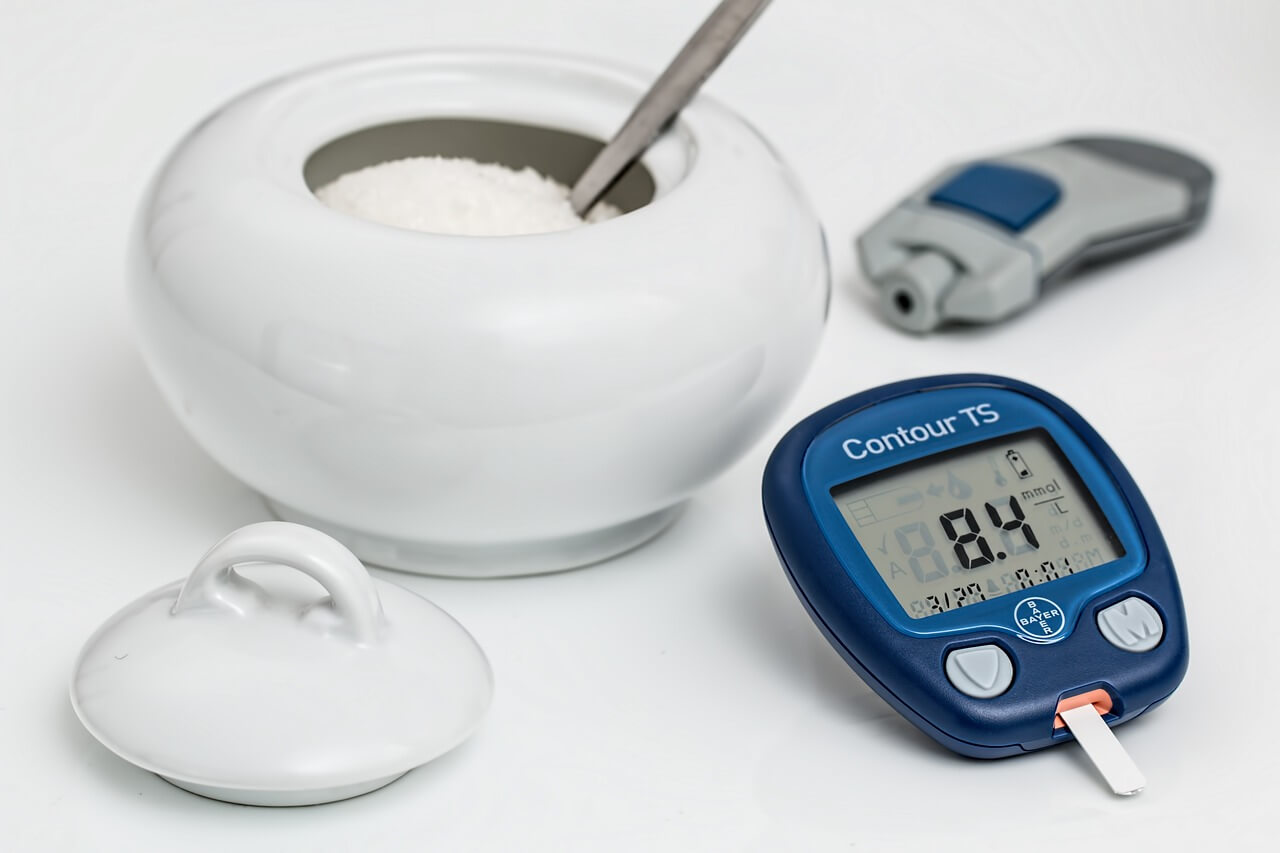I. Introduction
- Brief overview of Type 2 Diabetes
Type 2 diabetes is a chronic condition that affects the way your body metabolizes sugar (glucose), an important source of fuel for your body. With type 2 diabetes, your body either resists the effects of insulin — a hormone that regulates the movement of sugar into your cells — or doesn’t produce enough insulin to maintain normal glucose levels. This results in high blood sugar levels that can cause complications if left untreated.
Type 2 diabetes is the most common form of diabetes, and it typically develops in adults, though increasingly it is also seen in children and adolescents. Its development is often associated with obesity and a sedentary lifestyle, though genetics also play a role. - Importance of managing Type 2 Diabetes
Effective management of type 2 diabetes is crucial to prevent or delay the onset of complications. These complications can range from heart disease and stroke to kidney disease, vision problems, nerve damage, and more. Uncontrolled blood sugar levels can lead to these serious health issues, making it essential for those diagnosed with the condition to adhere to their treatment plan.
Moreover, managing type 2 diabetes also improves the individual’s quality of life. It allows them to maintain an active lifestyle, engage in daily activities, and live a fulfilling life. Importantly, with proper management, individuals with type 2 diabetes can lead a healthy and normal life, which emphasizes the importance of understanding and implementing effective strategies for managing this condition.
II. Understanding Type 2 Diabetes
- Definition and explanation of Type 2 Diabetes
Type 2 diabetes is a metabolic disorder characterized by high blood glucose levels due to insulin resistance or insufficient insulin production. Insulin is a hormone produced by the pancreas and is responsible for transporting glucose from the bloodstream into the body’s cells for energy. In type 2 diabetes, the body’s cells become resistant to the effects of insulin, which means that glucose can’t enter the cells as easily, resulting in high blood glucose levels. Additionally, the pancreas may not produce enough insulin to overcome this resistance, further contributing to elevated glucose levels. Over time, chronic high blood glucose can lead to a variety of health complications. - Causes of Type 2 Diabetes
The exact cause of type 2 diabetes is unknown, but it’s believed to involve a combination of genetic and lifestyle factors.- Genetic factors: Certain genes are linked to the development of type 2 diabetes, and it often runs in families.
- Lifestyle factors: These include poor diet, lack of physical activity, and obesity. Excess fat, particularly in the abdominal area, has been linked to insulin resistance.
- Other risk factors: Age, race, and certain health conditions such as gestational diabetes and polycystic ovary syndrome (PCOS) also increase the risk of developing type 2 diabetes.
- It’s important to note that while these factors increase the risk, they don’t guarantee that an individual will develop type 2 diabetes. Conversely, individuals without these risk factors can still develop the disease.
- Symptoms of Type 2 Diabetes
The symptoms of type 2 diabetes often develop slowly, over a period of years, and can be so mild that they go unnoticed. Some of the common symptoms include:- Increased thirst and frequent urination: Excess sugar building up in your bloodstream causes fluid to be pulled from the tissues, leading to increased thirst and subsequently, increased urination.
- Increased hunger: Without enough insulin to move sugar into your cells, your muscles and organs become depleted of energy, triggering intense hunger.
- Weight loss: Despite eating more than usual to relieve hunger, you may lose weight as your body uses alternative sources of fuel when sugar can’t enter the cells.
- Fatigue: If your cells are deprived of sugar, you may feel tired and irritable.
- Blurred vision: High blood sugar levels can cause fluid to be pulled from the lenses of your eyes, affecting your ability to focus.
- Slow-healing sores or frequent infections: Type 2 diabetes affects your ability to heal and resist infections.
- If you experience any of these symptoms, it’s important to consult a healthcare provider. Early diagnosis and treatment can prevent or delay complications associated with type 2 diabetes.
III. Strategies for Managing Type 2 Diabetes
- Medication Management
Oral Medications: Various oral medications are available to help manage type 2 diabetes. Metformin is typically the first medication prescribed and works by improving the sensitivity of your body’s cells to insulin. Other classes of medications include sulfonylureas and meglitinides (which stimulate the pancreas to secrete more insulin), DPP-4 inhibitors and GLP-1 receptor agonists (which reduce blood sugar levels), and SGLT2 inhibitors (which prevent the kidneys from reabsorbing sugar into the blood). The choice of medication depends on the individual’s specific needs, health status, and the medication’s potential side effects.
Insulin Therapy: Some people with type 2 diabetes may need insulin therapy. This is more common for those who have had the disease for a long time, or if other medications are not sufficient to control blood sugar levels. Insulin is injected through the skin into the fatty tissue below. The specifics of the insulin regimen (types of insulin used, number and timing of injections) vary from person to person. - Lifestyle Changes
Dietary Modifications: A healthy diet is crucial in managing type 2 diabetes. This includes consuming a variety of foods rich in fiber and low in fat and calories, such as fruits, vegetables, and whole grains. It’s also important to control portion sizes and to eat at regular intervals to avoid blood sugar spikes and crashes. A dietitian can help create a meal plan that fits the individual’s health goals, food preferences, and lifestyle.
Physical Activity: Regular physical activity helps control the body’s blood sugar levels and can increase insulin sensitivity. This means that the body’s cells can use the available insulin more efficiently to absorb glucose. Activities can range from structured exercises like jogging, cycling, or weight lifting, to everyday activities like gardening or walking. It’s recommended to aim for at least 30 minutes of moderate-intensity exercise most days of the week. - Regular Monitoring
Blood Sugar Testing: Regular blood sugar testing is a fundamental part of managing type 2 diabetes. It helps to determine how well the management plan is working and whether any adjustments need to be made. Frequency of testing varies from person to person, depending on the type of medication used and the level of blood sugar control.
Regular Check-ups: Regular check-ups with healthcare providers are essential for managing type 2 diabetes. These visits can help monitor the progress of the disease, adjust treatment as needed, and check for any complications. In addition to regular appointments with a primary care doctor, individuals with type 2 diabetes may also need to see endocrinologists, dietitians, and other specialists as part of their diabetes care team.
IV. Role of Healthcare Providers in Managing Type 2 Diabetes
- Importance of Regular Consultation
Regular consultations with healthcare providers are integral to managing type 2 diabetes effectively. These consultations allow for the continuous monitoring of blood glucose levels, adjustments to medication dosage, and the early detection and management of any potential complications. They also provide an opportunity for individuals with diabetes to discuss any concerns or difficulties they may be facing in managing their condition. Regular consultations ensure that the treatment plan is not only medically sound, but also tailored to the individual’s lifestyle, preferences, and values. - Diabetes Education
Healthcare providers play a crucial role in providing diabetes education. This involves teaching individuals with diabetes about the disease itself, its potential complications, the importance of good blood glucose control, and practical skills for managing diabetes, such as self-monitoring of blood glucose, healthy eating, and physical activity. Diabetes education is a collaborative process, aiming to empower individuals to make informed decisions about their health and to manage their diabetes effectively. - Mental Health Support
Living with a chronic illness like type 2 diabetes can be challenging, and may increase the risk of mental health issues such as depression and anxiety. Healthcare providers can provide mental health support by regularly screening for these conditions, providing counselling, or referring individuals to mental health specialists as needed. They can also help individuals deal with the emotional and psychological aspects of living with diabetes, such as coping with diabetes distress (the emotional burden of managing diabetes), addressing fears about complications, and supporting motivation for self-care.
V. The Impact of Proper Management on Quality of Life
- Reduced Complications
Proper management of type 2 diabetes can significantly reduce the risk of developing complications. These complications can be severe, including heart disease, stroke, kidney disease, vision loss, and nerve damage. By keeping blood glucose levels within a target range, adhering to a healthy lifestyle, and regularly monitoring for signs of complications, individuals with type 2 diabetes can prevent these complications or detect them early when they’re most treatable. - Enhanced Physical Health
Effectively managing type 2 diabetes also leads to enhanced physical health. Regular physical activity and a healthy diet can lead to weight loss, increased energy levels, and improved overall fitness. In addition, well-controlled blood glucose levels can prevent the fatigue and irritability often associated with high or low blood sugar. This can enable individuals with type 2 diabetes to lead active and fulfilling lives. - Improved Mental Wellbeing
The impact of type 2 diabetes management on mental wellbeing should not be overlooked. Living with a chronic disease can be stressful and may lead to feelings of anxiety or depression. However, effective management can provide a sense of control over the disease, reducing these negative emotional impacts. Furthermore, the support provided by healthcare providers and diabetes educators can help individuals cope with the emotional challenges of living with diabetes, enhancing their mental wellbeing.
VI. Conclusion
- Summary of Effective Strategies
In conclusion, effective management of type 2 diabetes requires a multi-faceted approach. This includes medication management, with oral medications or insulin therapy as needed, and lifestyle changes such as dietary modifications and regular physical activity. Regular monitoring of blood glucose levels and regular check-ups with healthcare providers are also crucial. Healthcare providers play a vital role in providing regular consultations, diabetes education, and mental health support. - Encouragement for Adherence to Management Strategies
It’s important to emphasize that adherence to these management strategies can significantly improve the quality of life for individuals with type 2 diabetes. By diligently following the treatment plan, individuals can reduce the risk of complications, enhance their physical health, and improve their mental wellbeing. It may not always be easy, but the benefits are well worth the effort. - Call to Action for Regular Check-ups and Consultations
Lastly, individuals with type 2 diabetes should make regular check-ups and consultations with their healthcare providers a priority. These check-ups are essential for monitoring the progress of the disease, adjusting treatment as needed, and checking for any complications. Remember, managing type 2 diabetes is a team effort, and healthcare providers are there to support individuals in their journey towards effective diabetes management.
Related posts:
Identifying & Treating Ingrown Hair on Labia: Visual Guide
Unraveling the Mystery of Irritability: Causes, Management, and Prevention
Importance of Mental Health Awareness in the Workplace
Can You Smoke Shrooms? Considerations Before Smoking Magic Mushrooms
Demystifying Epilepsy: Causes, Symptoms, and Modern Treatments
Understanding Autism in Children: Key Signs, Symptoms, and Support Strategies
8 Ways to Prevent Pregnancy Constipation
Experiencing Tracheal Shave: A Comprehensive Before and After Guide
Understanding the Signs and Symptoms of Early-Stage Alzheimer's
Healthy Dinner Recipes for Weight Loss










